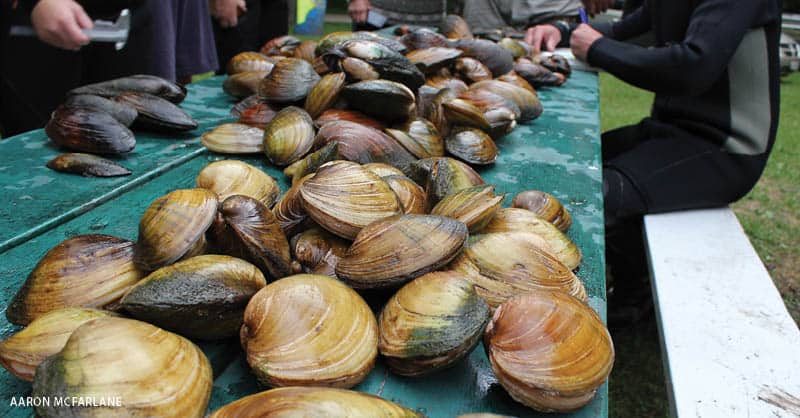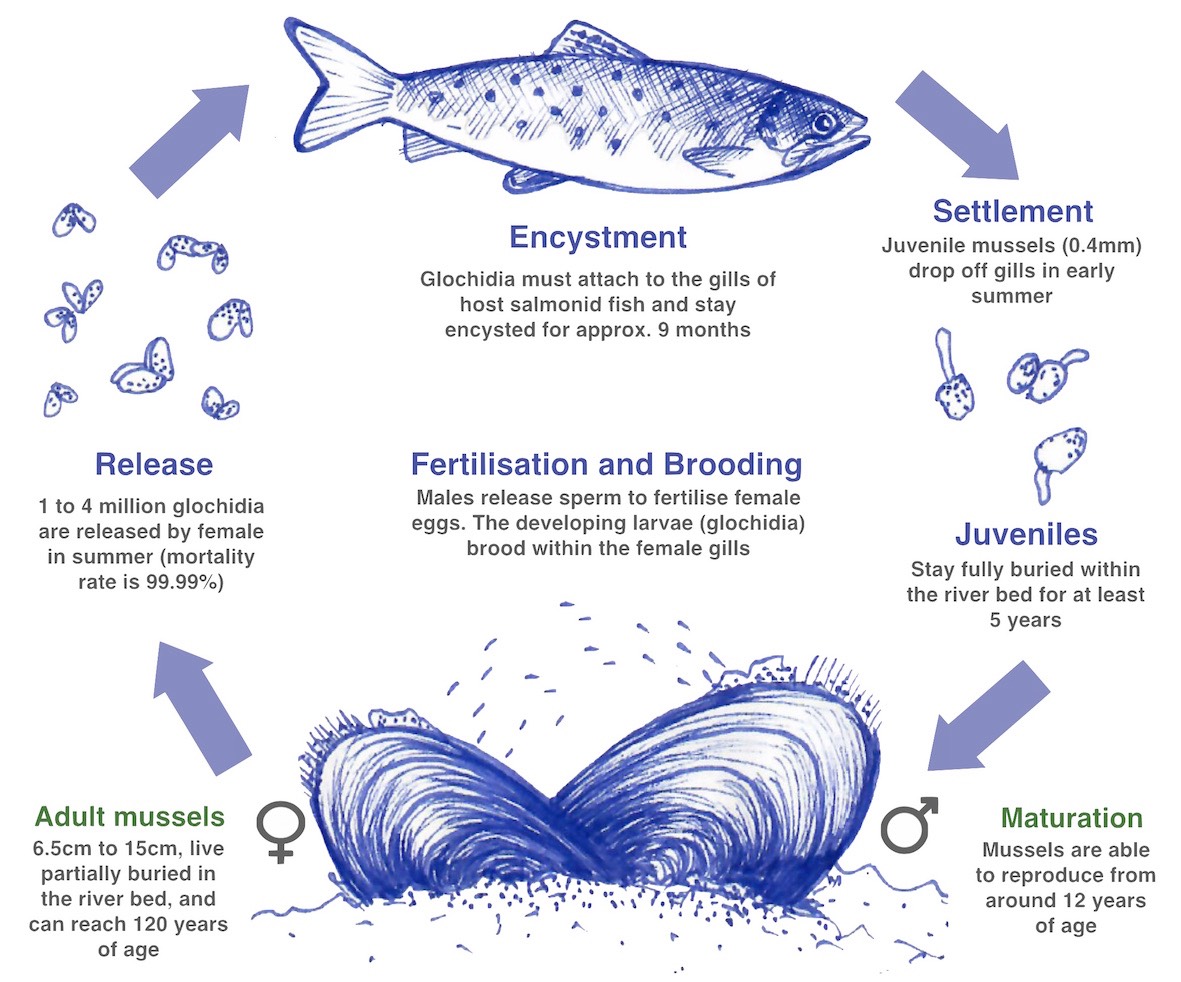
Hello River Lovers,
This Channel Chat is exploring the exciting world of freshwater mussels. Considered ‘nature’s water filtration system’, they are a great indicator of an aquatic ecosystem’s health. They can filter up to 10 gallons of water a day, removing algae, organic matter, and nutrients like nitrogen and phosphorus from the water.
Some species can live more than 100 years and their reproductive life cycle got its start more than 100 million years ago when larvae started hitchhiking on freshwater fish to distribute themselves to other parts of the water body.
Prior to the 20th Century, mussels covered the bottom of rivers, creating some of the cleanest, drinkable water around. In the 1800’s, a common hobby was for people to harvest mussels to eat and for their pearls.

Mussels were also harvested to make buttons and by 1899 41 factories in Iowa used these shells to make buttons.
Over the years, mussel populations have declined due to pollution, damming, exotic species introduction, and over-harvesting. In Iowa, there were 54 species of native mussels that once drifted throughout our rivers. Now there are 42 species, with nine being endangered, six threatened, and several harder to find.
Here are some ways to save and protect our current mussel species:
- Good soil conservation practices like terraces and contours
- Reducing nutrients flowing from the land into the water
- Stopping the spread of exotic, dangerous Zebra mussels by draining and cleaning all recreational watercraft’s
- Installing buffer strips of grasses and/or trees along the riverbank
For more information on freshwater mussels and which species can be found in Iowa, visit these websites:
- Cedar Valley Resource, Conservation and Development
- Midwest Fish and Wildlife Service
- Iowa Department of Natural Resources
Thanks for reading this month’s Channel Chat. If you have questions or want to share your freshwater mussel stories or pictures, please reach out to me at 515.350.4387 or at sara@iowarivers.org.
Stay well,

Featured River
Boone River

Boone River, a tributary of the Des Moines River, is 111 miles long. The Iowa Department of Natural Resources designated the lower 26 miles as a “Protected Water Area”. In 1982, there were 4 species of freshwater mussels, but due to the hard work of many, this river now hosts 11 different mussel varieties!
The Importance of Freshwater Mussels
Iowa PBS featured an 8-minute documentary, from Iowa Land and Sky, on the importance of freshwater mussels. Check out the movie by clicking the picture below.


